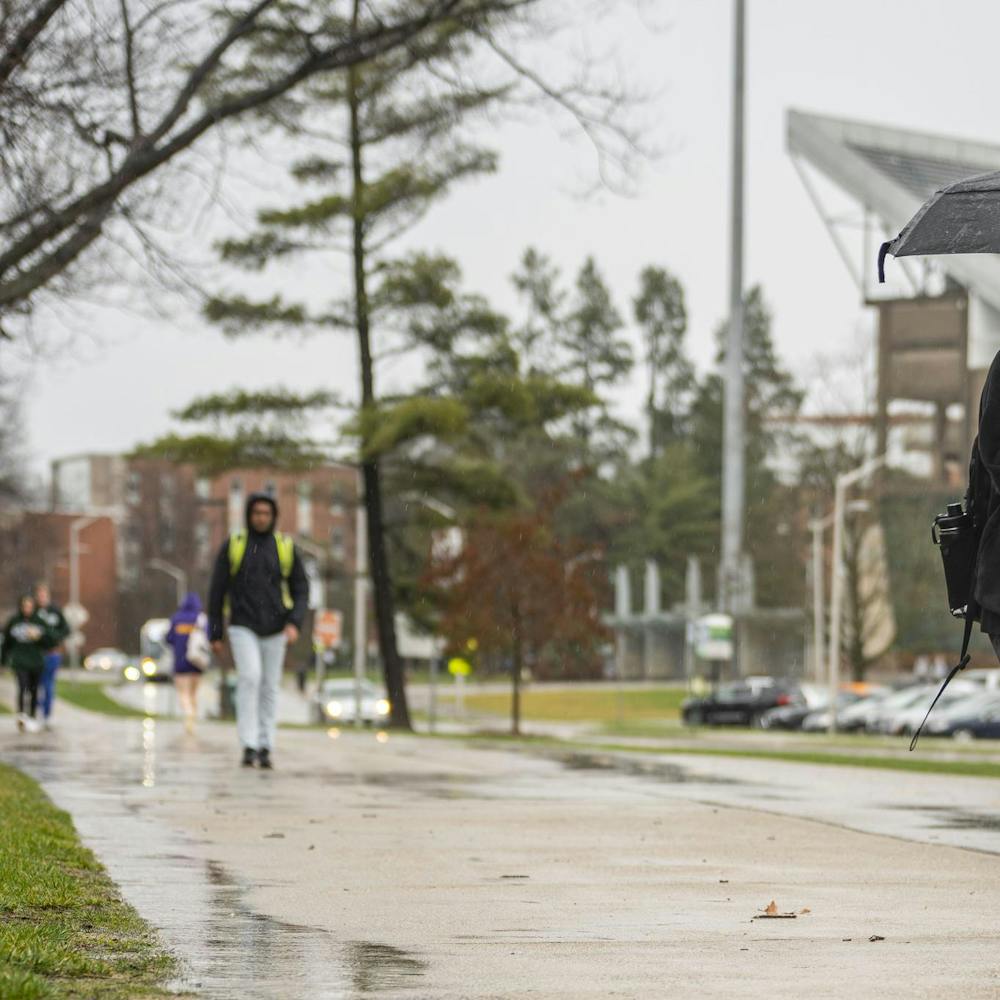A law passed in 1990 requiring colleges and universities to publish alcohol-related criminal statistics gives MSU the distinction of being the No. 2 university for issuing on-campus alcohol citations, as of 1998.
Many Spartans have contributed to this victory in different ways. I’m sure many of you are familiar with the routine: You are walking to a dorm, perhaps from a party, another dorm or anywhere. Maybe you’re completely hammered, or maybe you’re not even buzzing. But somehow, someone in a blue suit with a gun is trying to get you to blow into a machine that will tell them if you’ve been drinking. If you blow into it, they will lock you in a cage. And if you don’t, they will lock you in a cage.
Society can be pretty confusing sometimes.
Many people are unaware they live in the only state in the nation where an officer has the right to arrest you for refusing to take a Breathalyzer, even if you’re not in a car. In Michigan, even if they just think you’ve been drinking (“probable cause”) an officer has the right to search your body for any trace of an ancient fermented drink that, until recently, was legal in every state for every adult.
Then they stick you with something called a minor in possession.
“That’s funny,” you, a 20-year-old, might say. “I didn’t know I was still a minor.” Meanwhile they’re insisting it’s best for you to plead guilty. If you’d prefer not to do that, and you have really good manners, they might let you plead guilty to something else you didn’t do, like possessing alcohol in a stadium. They “cut you a break” by letting you plead your crime down from a misdemeanor to a civil infraction. The latter does not remain on your permanent record.
It’s a shame our federal government can be so manipulative. Our parents, in their hippie activist days, correctly asserted that their best friends were being blown to bits with grenades and burned alive with napalm while never being considered legally responsible enough to vote or have a Budweiser with dinner.
So between 1970 and 1975, 29 states changed their laws. And 18- to 21-year-old drunken-driving fatalities skyrocketed. Getting into a car while intoxicated is probably one of the most destructive things an average college student can do. This is why drunken driving arrests are so vigorously enforced, and rightly so. American college students did not live up to the responsibility, so the federal government denied funding to states refusing to rewrite their laws again, forcing the drinking age to 21 in all states.
But I’m not talking about drunken drivers. They should be locked far away where they can’t hurt innocent people. The vast majority of the citations issued were for simple possession or intoxication. The MSU police issued 655 alcohol citations on campus in 1998. If you really wanted to get crazy, you might think about what to make of the additional 1,048 citations issued by East Lansing police the same year. The differences are mind-boggling.
Numbers can be played with in all sorts of different ways, and it’s foolish to rely upon them. What we see when we examine different criminal statistics simply reduces to a difference in philosophies of law enforcement teams. Princeton University hasn’t issued a single alcohol citation in the past two years of records. Anyone who has been there understands this is because the city and university look at student drinking in a different way. Yale University only issued two. These are the extremes, but I think I’ve made my point.
Laws are laws, but that doesn’t mean the same thing to everyone. These Ivy League universities obviously feel that actively seeking out students violating drinking laws accomplishes nothing. But in our area, the authorities feel differently. And it is the law, and the act of violating laws carries consequences.
That’s why it wouldn’t be quite so infuriating if this was what was really wrong with East Lansing. I myself have once feared for my legal status, surrounded by mounted-horse police behind a 7-Eleven. “Had anything to drink tonight?” they smugly asked. I barely managed to survive this nerve-racking confrontation unscathed.
From my former encounters with the police, I knew my only chance was to lie, and then lie about the lies I had just lied about. Most will probably say I should have swallowed my pride, accepted the consequences of my actions, and shelled out my $150 to the East Lansing police. I’m not sure how many would actually make that decision when presented the situation, but I simply didn’t feel I owed anyone any money. What possible harm could I have been causing to the society around me as I showed my Wolverine friend our beautiful campus?
Meanwhile, a rapist roams the city during the summer, and possibly still. And have you found that fake East Lansing patrol car with the fake cop riding around in it yet? A student was beaten to death on a football game day outside of one of the most popular student bars in the center of town. Are there even any suspects? What are you doing about these things as you surround me with horses and Breathalyzers?
If the police want to change the flow of this public relations disaster they’ve been cleaning up for the past three years, I might suggest they begin trying to make us fee morel protected rather than more enforced.
Andrew Banyai, a political science and pre-law junior, can be reached at banyaian@msu.edu.






